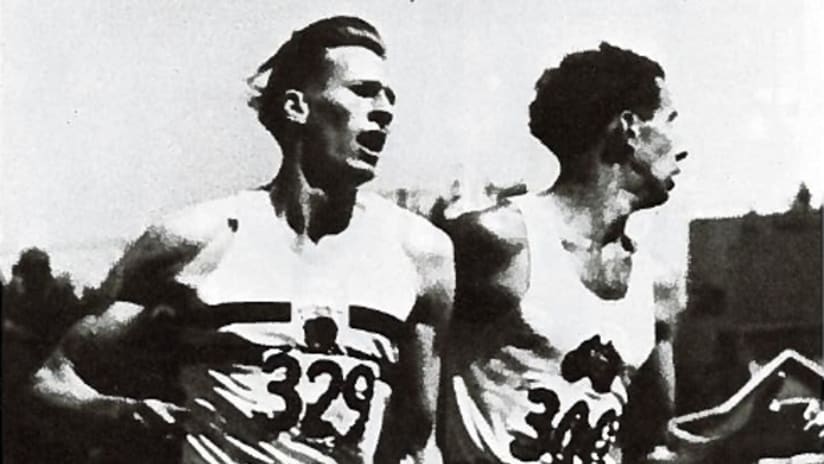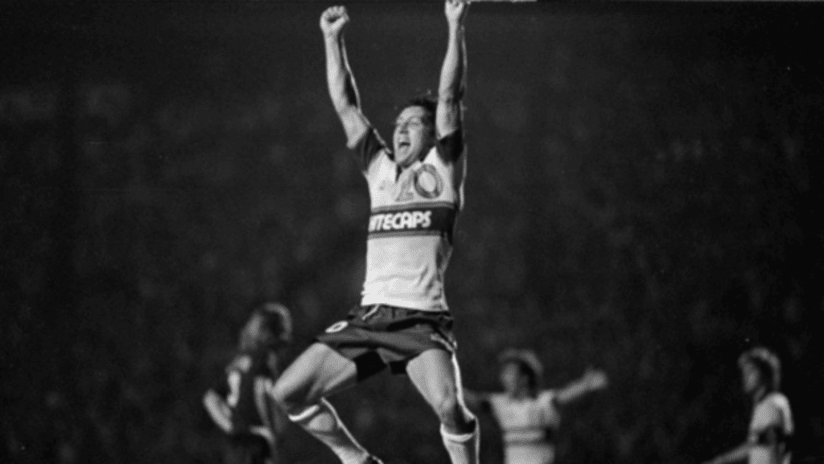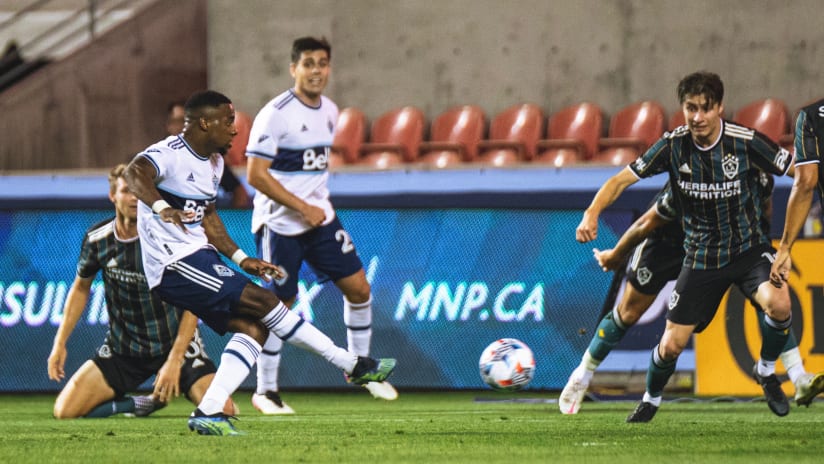As we prepare to bid farewell to Empire Field for a final time on Saturday, whitecapsfc.com reaches into the vault today with a story from the original 1983 "Farewell to Empire Stadium" edition of Whitecaps Magazine. Below, Drew Snider details the event that put the original stadium on the map.
The people wanted it. The Western Interprovincial Football Union required it: a proper stadium to house a new football team. It was the latest in an endless series of projects to “put Vancouver On The Map,” and more than football, the big attraction was to be the British Empire and Commonwealth Games. The city had been awarded the Games for 1954, and work on the Stadium began in earnest June 23, 1953, when Percy Williams, who had won two gold medals at the Olympics in Amsterdam 25 years before, jammed a shovel into the ground at the southeast corner of Hastings Park to turn the first sod. And over the next 13 months, excitement around the city grew along with the stadium.
And what a way to inaugurate a stadium! More than 25,000 people – the biggest sports crowd in Vancouver’s history – came to the opening ceremonies for the Games and the Stadium. The Games meant instant recognition for the city and the stadium around the Empire and the Commonwealth, with Empire records falling daily and memorable scenes like that of British marathoner Jim Peters stumbling comatose around the track in the blazing August sun, finally collapsing as he crossed the ‘regular’ finish line – still several yards short of the marathon finish.
But the one event which put Empire Stadium on the map and Vancouver in the minds of sports fans everywhere, was one which still makes Vancouverites shudder with pride when they think “it happened here”: The Miracle Mile.
That label was hung on the mile competition before the Games began, because it was to be the first meeting between two milers who had successively lowered the world record for the mile until it stood below the mythical four-minute barrier. Englishman Roger Bannister had done it first, then, at the other end of the world, Australian John Landy had run it even faster. By “faster”, you understand, we’re talking in terms of tenths-of-a-second. But remember: this was a four-minute mile, and learned scientists had questioned whether the human body could run that fast, for that long, without suffering ill effects. It was like the 10.0 hundred-yard dash; one of those finite limits of human endurance, and people thought the four-minute mile was It.
So when two Empire/Commonwealth runners were both slated to meet at the Vancouver Games for the first time since they had cracked that barrier, the whole world made a note to look at Vancouver on August 7, 1954. They would see not just a battle of two great runners, and possibly a new world record, but a study in contrasting styles. Landy liked to lead from start to finish, hitting a cruising speed early and hanging on. Bannister liked to follow the leader, taking the other one’s pace for his own, then switching on the afterburners in a wicked finishing kick down the last half-lap.
Landy followed that plan, setting a killing pace. But by the second lap, Bannister was 10 yards behind and closing the gap ever so slightly with each stride, until that famous surge … Landy checking over his left shoulder for Bannister’s shadow … not seeing it … while Bannister blew by him on his right shoulder to win
Erwin Swangard in the Vancouver Sun described it this way:
An exhausted, completely spent Dr. Roger Bannister … breasted the tape first after a tremendous stretch drive … Actually, Bannister did not breast the tape, he tore and clawed it down with desperately reaching hands … Bannister thus did what he told a Canadian track official a few minutes prior to the race: “I will run myself to the point of exhaustion to win.”
And the main thing was, both Bannister and Landy had run the mile – in the same race – in less than four minutes. Bannister’s finishing time was 3:58.8; Landy’s time was 3:59.6; and to give the Vancouver fans even more to cheer about, the bronze medal went to Rich Ferguson of Toronto, in 4:04.6, 15 seconds faster than he’d run the mile in the Games trials.
The Miracle Mile came true and a week after its opening, everyone knew all about Empire Stadium, Vancouver.
“My Name is Ozymandias . . ……..
It’s still not certain what will happen to Empire Stadium now. There’s a report waiting for action from the Provincial Secretary on the disposition of all the land at the PNE, and it contains recommendations on the fate of the Stadium, but those recommendations aren’t known yet. PNE officials freely admit that if the Stadium is to be saved, it’ll need massive renovations, and that will need massive infusions of cash, but where that cash will come from is more than they can tell you. The ideas include shoring up everything in the Stadium that needs shoring-up, replacing the turf and turning it over to amateur sports; another is to do all that, but pull down one grandstand; or knock the Stadium down altogether and increase the parking space at the PNE.
And if the wrecker’s ball goes to work on The Empire, will there be misty eyes all around? With each blow, will we hear some ethereal crowd cheering on the spirits of Bannister and Landy, Jerome and Brill, the ’64 Lions and the ’79 Whitecaps? Will there be a last-ditch Heritage Campaign in City Hall to save the Stadium? Or will we look at a crumbling old wreck, obsolete before its time, and say, “Good Riddance!”?
Probably all of the above, I fancy. Because through it all, we’ll remember the Days Of The Empire for what they’ve been: the stranger, halting steps of a city awakening to the idea that it belongs in a class with the Big Ones, and rushing, hard, to catch up.
Don't miss out on the final farewell to Empire Field this Saturday, September 24, as Vancouver Whitecaps FC battle Pacific Northwest rivals Seattle Sounders FC. Kickoff is set for 7:30 p.m. PT. Individual match tickets start at $20, plus applicable service charges, and are available at all Ticketmaster Ticket Centres, online at ticketmaster.ca, and Charge-by-Phone at 1.855.6.GO-CAPS (1.855.646.2277). Visit whitecapsfc.com/tickets for more information on individual match tickets for the club's inaugural MLS season.





